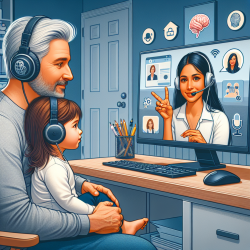As a practitioner in the field of speech-language pathology, understanding the attitudes towards older people can significantly impact your practice and the outcomes for your clients. A recent study titled Attitude towards Older People According to Sociodemographic and Educational Variables in Students of a Chilean University provides valuable insights into how sociodemographic and educational variables influence attitudes towards older people.
The study, which involved 515 students from a Chilean university, used Kogan’s Attitudes towards Old People scale to measure their attitudes. The results showed that students generally had a low-level positive attitude towards older people, with an average total score of 139.1 (±16.6). However, several factors were found to be associated with more positive attitudes:
- Older students (26–42 years old)
- Female students
- Chilean students
- Students in their final years of study
- Students who had received training on older people outside the university
For practitioners, these findings have several implications:
1. Incorporate Training on Aging in Your Curriculum
Ensure that your training programs include comprehensive education on aging and working with older adults. This could involve workshops, courses, or practical experiences that provide students with a better understanding of the aging process and the specific needs of older clients.
2. Promote Positive Interactions with Older Adults
Encourage students and professionals to engage in activities that foster positive interactions with older adults. This could include volunteer work, internships, or community service projects that involve working directly with older individuals.
3. Address Stereotypes and Prejudices
It's essential to address and challenge any stereotypes or prejudices towards older people within your training programs. Use evidence-based strategies to educate students about the diverse experiences and capabilities of older adults, promoting a more inclusive and respectful attitude.
4. Focus on Empathy and Compassion
Develop training modules that emphasize empathy and compassion towards older clients. Techniques such as role-playing, simulations, and reflective exercises can help students and professionals develop a deeper understanding and appreciation for the challenges and strengths of older adults.
5. Encourage Further Research
Finally, encourage students and professionals to engage in further research on attitudes towards older people. Understanding the factors that influence these attitudes can help in developing more effective training programs and interventions that promote positive outcomes for older clients.
To read the original research paper, please follow this link: Attitude towards Older People According to Sociodemographic and Educational Variables in Students of a Chilean University.










